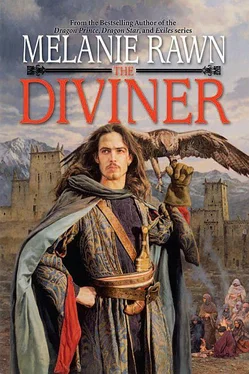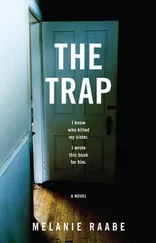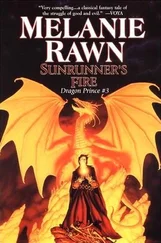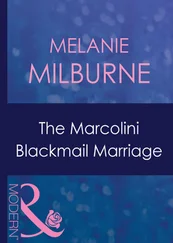Melanie Rawn - The Diviner
Здесь есть возможность читать онлайн «Melanie Rawn - The Diviner» весь текст электронной книги совершенно бесплатно (целиком полную версию без сокращений). В некоторых случаях можно слушать аудио, скачать через торрент в формате fb2 и присутствует краткое содержание. Год выпуска: 2011, Издательство: DAW Books, Жанр: Фэнтези, на английском языке. Описание произведения, (предисловие) а так же отзывы посетителей доступны на портале библиотеки ЛибКат.
- Название:The Diviner
- Автор:
- Издательство:DAW Books
- Жанр:
- Год:2011
- ISBN:нет данных
- Рейтинг книги:4 / 5. Голосов: 1
-
Избранное:Добавить в избранное
- Отзывы:
-
Ваша оценка:
- 80
- 1
- 2
- 3
- 4
- 5
The Diviner: краткое содержание, описание и аннотация
Предлагаем к чтению аннотацию, описание, краткое содержание или предисловие (зависит от того, что написал сам автор книги «The Diviner»). Если вы не нашли необходимую информацию о книге — напишите в комментариях, мы постараемся отыскать её.
The Diviner — читать онлайн бесплатно полную книгу (весь текст) целиком
Ниже представлен текст книги, разбитый по страницам. Система сохранения места последней прочитанной страницы, позволяет с удобством читать онлайн бесплатно книгу «The Diviner», без необходимости каждый раз заново искать на чём Вы остановились. Поставьте закладку, и сможете в любой момент перейти на страницу, на которой закончили чтение.
Интервал:
Закладка:
Hiding himself and his horse as best he could, he spent the day wondering what to do. Fitful sleep was interrupted by visions of axes descending on his neck, of Khamsin disemboweled by gleaming swords, of the Sheyqa’s laughing face, all shaded in crimson. And it seemed that every few moments he was jerked awake by the shrieking of a hawk. At dusk he rose, nervous and unrefreshed, and turned Khamsin onto a narrow side trail that took them higher and farther from the pass. He had no idea where he was or where he was going. He only knew he could not descend from The Steeps anywhere near the Ammarad.
Acuyib smiled on Azzad once more, for just as the moon rose to light the rugged rocks, he came upon two bodies: hunters, nondescript in their clothing and wearing no distinguishing jewelry. Identification at this point would have defeated their own mothers; desiccating sun and scavenging animals had obliterated features and flesh. One of the men was a fair match for Azzad in height. Staring down at the corpses, wondering how they had died, he pondered many alternatives before deciding that the thing could be done.
Intending to heft the taller man across Khamsin’s saddle and go stage his scene closer to the main road where it would be more readily discovered, he grappled with the limp body for a moment, then blurted in surprise as he learned rather abruptly what had caused the man’s death. There was a knife stuck in his lower back. Azzad turned the second man over and found that a smaller knife had ripped through his belly. Crouching beside the corpse, wincing at the still painful wound in his thigh, he pondered for a time, then nodded. Definitely the thing could be done.
By sunrise the depiction of his own murder was complete. The taller man was dressed in Azzad’s clothes, the knife stuck through them. Realism demanded bloodstains on the garments; Azzad unwrapped the bandage from his thigh and carefully coaxed fresh blood from the wound. That it was alarmingly easy to do so worried him for only a moment. He’d concern himself with healing later.
“His” corpse also wore a silver armband regretfully donated to the ruse. The golden key of the postern gate lock was tucked into the sash. But a gold ring set with a dark topaz Azzad would not relinquish; carved with the leaf symbol of the al-Ma’aliq, it was a present from his mother. The second man lay on his back this time instead of his belly, with Azzad’s own eminently identifiable knife thrust into his gut.
As dawn glimmered through the deep canyons of The Steeps, the last of the al-Ma’aliq sat in the dust, patiently unknotting the pearls. He stashed most of them in his belt, intending to sacrifice ten to the embellishment of the murder. Cradling them and the flower-petal clasp in his palm, he looked from one body to the other and decided that “his” corpse was the better choice. Accordingly, he dropped the pearls and the clasp near one lifeless hand and then limped back from the scene to evaluate his work.
If the Qoundi Ammar indeed followed him, and he had every reason to think that they would, they would discover the half-eaten corpses. With luck, they would soon identify the personal items—the armband, the key, the knife—and return to tell the Sheyqa that Azzad al-Ma’aliq was dead. They would go no farther; they would not reach the crimson tents and ask about a lone traveler. Azzad would be free to descend, claim the rights of hospitality, and depart for the western desert, knowing no one would ever come after him. They would never know who he was.
But even if a caravan or other hunters found the bodies, it was of no real consequence; when armband and knife were taken to be sold and the key taken to be melted down, someone among the city’s merchants would know. He was— had been , he reminded himself—popular among the crafters of Dayira Azreyq, lavish in his spending on trinkets for himself and his mistresses. The clasp in particular was unique to a certain jeweler, who would certainly remember Azzad. And if there weren’t enough pearls left to make the necklace the clasp had originally adorned—well, it was dusty here, and windy, and there were excuses enough for their absence. There was the key, as well: the most identifiable item of all, for its design incorporated the graceful leaf of the al-Ma’aliq. Someone would recognize it. He was certain.
It seemed his dissolute ways, deplored by his family, might save his life twice. Visiting one woman had spared him on the night of the massacre, and giving jewels to the others could confirm his death. Never had he been so glad—or so ashamed—of his misspent youth.
And how odd it was, he reflected, that at twenty years old, he considered youth irretrievably gone.
Khamsin’s hoofprints to and from this place would lead riders off the main road to discovery of the scene. As he rode away wearing the dead hunter’s clothes, bow and quiver on his shoulder, he apologized to his horse. “I know you’d never leave me, not even if I really was lying there dead. But we have to make it look as if you did.”
And then it occurred to him that the horse was more loyal to him than he had been to his family.
Ayia, what good would it serve if he too had died? Who would be left to avenge the al-Ma’aliq? The new granddaughter? Not even if Nizzira allowed her to live. Indoctrinated from her first breath, taught to despise half her heritage—
No. Azzad had been spared for a reason. And as he rode brashly through the pass in the gathering heat of the day, he thought of his family for what he swore must be the last time until he was ready to exact retribution for their deaths. When word filtered through the city that he was dead, there would be no one to mourn. Never again would he watch with hawk’s eyes as his friends blushed in his sisters’ silked and scented presence. Never again would he see his mother arch a sardonic brow at his latest exploit or listen to his father and uncles recite The Lessons of Acuyib at dawn prayers. And never again would his grandfather peer at him from beneath bristling white brows and bark, “Well, boy? Which pretty charmer have you seduced now? Would I have risked my venerable balls for ten minutes alone with her?”—and then laugh until he choked on his glee.
Azzad arrived at the tents of the Ammarad the next day. The vast mass of the encampment was denied him; he was not allowed past the outermost tents, which were reserved for travelers who had no shelter of their own. As the laws of hospitality required, the wound on his thigh was tended by the tribe’s chief tabbib, a grizzled old man whose treatment seemed to rely more on incantations and the pattern of thrown stones on a carved wooden plate than on any medicines in his satchel. But the chants did no harm, and the wrappings he used on Azzad’s thigh were clean and smelled of a spicy salve. Khamsin was fed and watered, Azzad was shown a corner of a tent to sleep in, and everyone appeared to believe his story of going out to prove his worth to his father by hunting down a sand-tiger—which had so vehemently left its mark on his leg.
It rankled to accept their food and drink, but he did just that for three days. For Khamsin’s sake, he told himself. He could guess what lay ahead of them in the desert.
“And where do you go now?” the elderly tabbib asked as he prepared to leave.
“East,” Azzad lied.
“I know all the tribes who make their camps in the east, Zaqir.” The unspoken question was From which do you come?
Azzad had called himself falcon, for he intended to fly as free and swift as a hawk and kill with utter ruthlessness. But he had not mentioned a family name. “I would not disgrace my tribe by naming them,” he said slowly. “I failed in my quest.”
A shrug of bony shoulders. “That you did not succeed in taking the rimmal nimir’s pelt is no dishonor, Zaqir. You have the marks to prove you faced the beast. And I am certain your mother will be just as glad that you lived to tell of it.”
Читать дальшеИнтервал:
Закладка:
Похожие книги на «The Diviner»
Представляем Вашему вниманию похожие книги на «The Diviner» списком для выбора. Мы отобрали схожую по названию и смыслу литературу в надежде предоставить читателям больше вариантов отыскать новые, интересные, ещё непрочитанные произведения.
Обсуждение, отзывы о книге «The Diviner» и просто собственные мнения читателей. Оставьте ваши комментарии, напишите, что Вы думаете о произведении, его смысле или главных героях. Укажите что конкретно понравилось, а что нет, и почему Вы так считаете.












